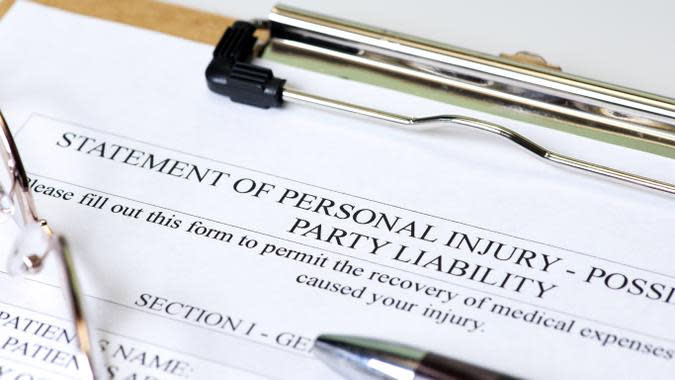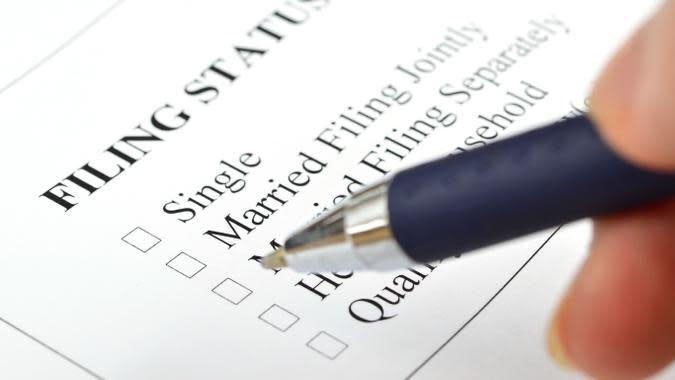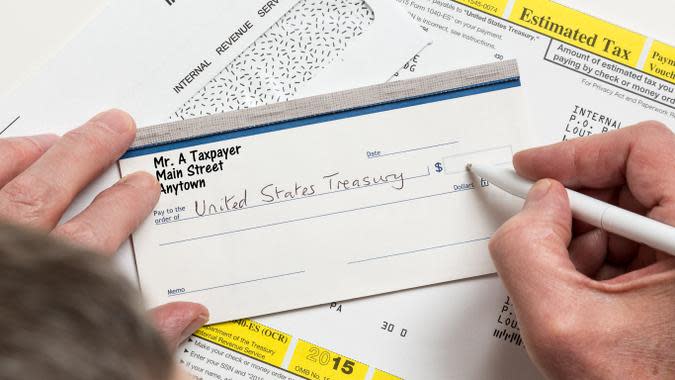15 Secrets You Should Never Keep From Your Tax Accountant

If you're using a tax accountant to prepare your tax return, you expect to get the maximum refund to which you are entitled. However, your accountant can't do the job unless you share all the necessary information.
See: 6 Types of Retirement Income That Aren't Taxable
Find: 3 Ways Smart People Save Money When Filing Their Taxes
"Keeping secrets from your accountant is similar to keeping secrets from your doctor," said Dave Du Val, chief customer advocacy officer at TaxAudit.com. "While you normally won't die from keeping a secret from your accountant, consequences can be quite serious from doing so, depending on the secret."

1. You Failed To File Taxes in Prior Years
It can be embarrassing to admit that you haven't filed your taxes in prior years. "I once had a client who had not filed tax returns in more than 12 years," said Tiffany Couch, owner of Acuity Forensics in Vancouver, Wash. "He initially had a CPA who went out of business, then got too busy to find a new one that year."
As the years rolled along, the client never addressed the situation. "He was overwhelmed with guilt and shame, and found himself doing nothing to remedy the problem," Couch said.
Such procrastination is a huge mistake. The longer you wait to file, the more trouble you might face. Interest and penalties keep piling up until you file. Your accountant can help you file past returns to stop you from accruing additional costs.
Take Our Poll: What Are Your Financial Priorities in 2023?

2. You Were Involved in a Personal Injury Lawsuit
Some types of personal injury might be embarrassing to disclose to your tax accountant. However, if you don't share details, your accountant might not prepare your taxes correctly.
"One secret that a client didn't share with me was that they were part of a personal injury lawsuit," said Craig Smalley, an Orlando, Fla.-based enrolled agent, and founder and CEO of CWSEAPA, an accounting and financial services firm with offices in Delaware, Florida and Nevada.
Smalley added that although money from lawsuits is usually not taxable, you do owe tax if the cash is tied to lost wages -- which was the case with Smalley's client.

3. Your Marital Status Has Changed
Although the reasons you get married or divorced can remain personal, be honest with your tax accountant about your marital status.
"Several times, I have had clients tell me they were married when they were actually divorced but remained together," said Jeffrey Beebe, who owns Jeffrey Beebe CPA in Boise, Idaho.
For example, one couple in this situation filed tax returns jointly. Then, when the wife's son applied for college financial aid, he was denied because the "husband" had a high income. "If they had been honest and not filed jointly, there would have been significant financial aid," Beebe said.

4. You've Paid Personal Expenses With Business Funds
If you use your business as a personal piggy bank, you might be tempted not to tell a tax accountant. Some people fail to disclose this information because they're embarrassed about struggles with personal finances. Others might stay silent because they don't want their accountant to say the costs aren't deductible.
"In reality, these choices often set you up to fail," said Matthew Hetrick, the Annapolis, Md.-based president of Culinary Accountants. "Those expenses aren't deductible when they're done inappropriately -- they raise audit flags with the IRS and state tax agencies, and taxpayers can inadvertently accrue huge tax liabilities by making illegitimate payments that they don't report."

5. You Have Overseas Bank Accounts
You might think keeping money in a bank account abroad is no big deal, especially if you know you're not using the cash for nefarious purposes. However, the IRS requires you to disclose this information. Sharing these details with your accountant ensures it gets reported properly on your tax return so you avoid paying extra fines or penalties, and avoid being audited by the IRS.
"U.S. people -- citizens, residents, green card holders, etcetera -- must report any non-U.S. account regardless of the balance, regardless of where they are living," said Abby Eisenkraft, a New York-based enrolled agent and CEO of Choice Tax Solutions. "The penalties for failure to report are enormous, and you can easily be subject to a $10,000 minimum penalty, plus civil and criminal charges."

6. You Have Other Overseas Assets
Bank accounts aren't the only foreign assets you must report. You must disclose all assets, including real estate such as a vacation home. It might not feel exotic to you, but to the IRS, it's a foreign asset that requires reporting. Fail to disclose this information properly on your taxes, and you could owe large fines or face criminal charges.

7. You Have Paid People 'Under the Table'
You might think you're pulling a fast one on the IRS by paying employees "under the table" so you don't have to pay payroll taxes or withhold taxes on their behalf. However, you're hurting yourself and your employees, Hetrick said.
"Taxpayers can inadvertently accrue huge tax liabilities by making illegitimate payments that they don't report," he said. "A good CPA is a partner and an advisor -- you should be having open and honest conversations about how to accomplish your goals, not hiding expenses so your CPA can't help you."

8. You Have Gambling Income
You might be tempted to avoid sharing your gambling habits with a tax accountant, fearing your accountant won't approve, or that your spouse will see just how much you've gambled when it is reported on your joint tax return. But gambling winnings count as fully taxable income, according to the IRS.
If you don't share the information, your tax accountant can't prepare a return properly because it won't show all your income. And although no one likes to admit losing, you might qualify to use some or all of your gambling losses to offset your winnings for the year, which can lower your tax bill.

9. You Have Earned Income From a Side Business
Your side hustle might amount to little more than extra spending money, but you need to report it, said Couch. So be sure to tell your tax accountant about this income.
If you earn more than $600, those who paid you should send a Form 1099-MISC documenting your earnings. However, even if you don't receive a form or earn less than $600, you are still legally required to report all income. It is a common misconception that you don't have to report income if you don't receive a tax form documenting it, according to the IRS.

10. You Are Unable To Pay Your Tax Bill
If you can't pay the taxes you expect to owe, don't hide this secret from your tax accountant, said Couch. Your accountant can help arrange a payment plan with the IRS. For example, you might receive an extra 120 days to pay, although interest and other penalties will continue to pile up until you pay in full.

11. You Have Debts To Pay
You might be uncomfortable telling your tax accountant how much money you owe. Maybe you fear appearing less wealthy, or are simply embarrassed that you haven't paid off debts. However, not sharing your debts with your accountant can cause you to miss out on a range of income tax deductions. For example, it's possible student loan interest or mortgage interest will be deductible, which can reduce your tax bill.

12. You Earned Tip Income
If you earn tips, don't hide them on your taxes or from your accountant. You might think tip income isn't taxable because tips don't appear on your W-2. However, the IRS requires that you keep a daily tip record, report the tips to your employer and report all tips on your income tax return.
You must also include the value of noncash tips you receive. For example, if a generous diner pays for your plane ticket, you must include the value of that plane ticket in your taxable income. To avoid having the IRS come after you, fully disclose your tip income to your accountant.

13. You Failed To Make Estimated Payments
No one likes to admit to forgetting to do something, even if that something is making estimated tax payments. But, that's not a secret you should keep from your accountant, said Couch.
If you didn't make a required payment, perhaps you qualify for a penalty waiver because of a disaster or other unusual circumstance. Your accountant can tell you that. In addition, if you have a seasonal business, your accountant might be able to reduce or eliminate the penalty by using a special form to calculate when you had payments due based on when you earned the income.

14. Have New Family Members
Your tax accountant probably isn't on your list of people to whom you send photos of your newborn baby. If your baby is born in May or June, the child might be almost 1 year old by the time you see your accountant.
However, your baby is still big news, and she can increase your deductions or qualify you for credits that reduce your tax bill. Steven J. Weil, an enrolled agent and president of RMS Accounting in Fort Lauderdale, Fla., once encountered this situation with a client who had a baby, but neglected to tell Weil about the birth.
"When asked why the newborn was never mentioned, the couple replied that the child was born in June," said Weil. "Thus, in March of the following year, she was not thought to be a 'new' child." The client missed out on some deductions as a result of failing to tell Weil about the birth.

15. You Have Rental Income
The growing popularity of services like Airbnb means more people are renting out their homes. By sharing your activity with a tax accountant, you can make sure you report the income correctly. You'll also be more likely to uncover all the potential deductions that come with renting, including writing off a portion of your utilities and depreciating your home.
More From GOBankingRates
This article originally appeared on GOBankingRates.com: 15 Secrets You Should Never Keep From Your Tax Accountant

 Yahoo Finance
Yahoo Finance 